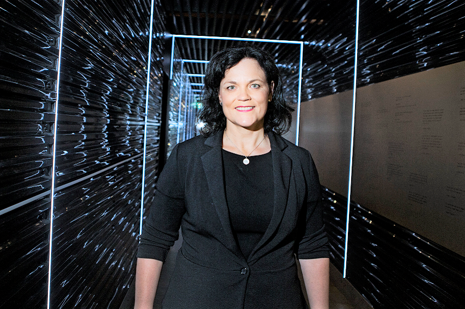
Catrin joined IATA in 2019 as Area Manager, Nordic & Baltic after working at RUAG Space and in the Swedish Aerospace Industry.
She currently sits in the Stockholm office where she covers Sweden, Finland, Norway, Denmark, Iceland, Latvia, Estonia and Lithuania. IATA member airlines in this cluster include SAS, Finnair, airBaltic, Widerøe, Icelandair, Atlantic Airways and Braathens.
Catrin in her own words:
“I am from the northern part of Sweden. I love nature and enjoy cozy winters with lots of snow where the candles light up the darkness, and the lovely summer with bright nights. Sustainability is particularly important to me. I now live in Stockholm, a beautiful city, close to the rest of the world by air. Part of my family lives in the US. I can’t wait until the travel restrictions are eased so we can visit family and friends around the world again. Connectivity is absolutely crucial.”
***
Catrin, thanks for taking the time to answer our questions, particularly in such challenging times.
When the Covid-19 pandemic hit the Nordic and Baltic countries, most airlines were forced to cease almost all operations. The drop in traffic was dramatic. Reality for the aviation industry radically changed in just a few days. The normally busy airports became suddenly empty, while aircraft parking spaces became crowded. It was surreal. The only thing in the air was uncertainty. Since then we have been focusing our efforts on helping the airline industry through the crisis.
Norway and Denmark were the first to respond to the crisis with some support for the industry. For example, to ensure domestic connectivity, Norway subsidized certain routes, enabling airlines to maintain part of their operations. Several countries have offered state guarantees, and different kinds of support packages. However, there is still an urgent need for additional support from the Governments. This is crucial for the air transport industry, the overall economy and connectivity. The Nordic and Baltic countries are small open economies, which depend heavily on international trade. Very importantly, some of the countries are sparsely populated (or in the case of Iceland almost uniquely accessible by air), meaning air traffic is of utmost importance.
We are experiencing a truly extraordinary situation, which has evolved completely outside the airlines’ control. With unprecedented numbers of flights cancelled, the amounts due to passengers are huge. We would like to see a more pragmatic approach by the European Commission regarding the option of refundable vouchers instead of an immediate refund. This would definitely be more helpful.
We are all yearning to fly again! A Swedish politician invented the word “flyglängtan” (“flight longing”) in contrast with “flygskam” (“flight shaming”). However, as long as severe restrictions are in place, the travel and aviation industry will not be able to recover.
There are obstacles to overcome for the restart, but the collaboration between stakeholders is constructive in the Nordic and Baltic countries. A very recent example of this: Norway just removed guidelines on blocking the middle seat, which is not a sustainable solution for aviation. This came as positive news, as over the last few months, we have been defending a multi-layered approach to ensure biosecurity while flying.
Environment and climate change are always high on the agenda in this part of the world. It is important that governments and the air transport industry work together. Aviation taxes are not a viable solution. They only constitute an additional burden on the airlines, while the money collected is not spent on measures that support sustainable aviation.
What we need from politicians is strengthened collaboration to ensure the supply of Sustainable Aviation Fuels, the support of research and innovation, and the commitment to the Single European Sky.
The airlines in our area are at the forefront when it comes to ambitious targets for sustainability, and we also see an exciting development in the fields of electric aviation, hybrids and technologies for increased fuel efficiency.
Additional information: